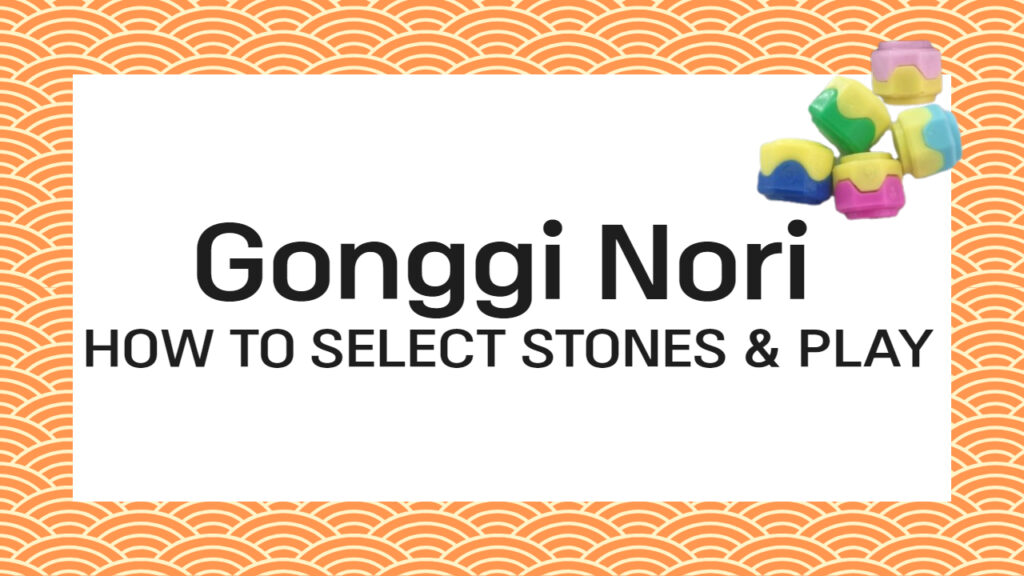
What is Gonggi Game?
Gonggi Game is a traditional Korean children’s game where players throw and catch small stones. This game is widely enjoyed across Korea and helps children develop their hand-eye coordination and motor skills. Gonggi game is known as “Gonggi Nori” in English, but it is called by different names in various regions; for example, it is called “Jjagebapgi” in North Gyeongsang Province and “Salgu” in South Gyeongsang Province.
Gonggi starts with simple rules but gradually becomes more complex, helping children improve their concentration and caution. Additionally, this game can be played with friends, which positively affects social skills. As a traditional folk game, it is still popular among children in schools.
Origin of Gonggi
The exact origin of Gonggi is unknown, but similar scenes are depicted in the murals of the Sosan-ri tomb from the Goguryeo era, suggesting it may have started during the Three Kingdoms period. Additionally, the name “Gonggi” was recorded in a Chinese dictionary in 1690, indicating that the term might have originated from China.
Selecting Gonggi Stones
You can buy Gonggi stones to play, but Gonggi is also a game that can be started immediately with just stones.
- Stone selection: Choose stones that fit the player’s hand size.
- Size check: Ensure all stones are of the same size.
- Important note: The stones should be small enough to fit in one hand, as players will need to throw and catch all five stones in the final stage.
How to Play Gonggi
Common Gonggi Game Rules
- Stage 1: Catch one stone – Throw one stone and catch another on the ground, then catch the thrown stone. Repeat this four times.
- Stage 2: Catch two stones – Throw one stone and catch two on the ground, then catch the thrown stone. Repeat this twice.
- Stage 3: Catch three stones – Throw one stone and catch three on the ground, then catch the thrown stone and pick up the remaining one.
- Stage 4: Catch four stones – Throw one stone and catch all four on the ground at once, then catch the thrown stone.
- Stage 5: Catch five stones – Throw all five stones, catch them on the back of your hand, and then throw and catch them again.
- Scoring: Calculate points based on the number of stones caught in Stage 5.
Stages 1 to 5 form a set, and one team continues to play until they fail. Failure occurs if:
- During Stages 1 to 4, a player either touches another stone while catching or fails to catch the thrown stone after picking up the stones.
- In Stage 5, if a player fails to catch all stones on the back of their hand.
The team that reaches the predetermined score first wins.
Other Gonggi Game Rules
- Many Gonggi: This method involves using dozens of stones and catching as many as possible in one go. The person who catches the most stones wins. This game is a more challenging and fun variation of traditional Gonggi, using more stones.
- Speed Gonggi: In this version, players aim to complete all stages of traditional Gonggi as quickly as possible. Speed Gonggi competitions are also held, where the person who completes all stages in the shortest time wins.
- Crisis Gonggi: This variation involves changing the rules when a certain score is reached. For example, once a specific score is achieved, another player gets to choose the first stone, or players must avoid touching other stones while catching. This increases the difficulty and challenge of the game.
Conclusion
Gonggi game starts with simple rules but gradually becomes more complex, allowing children to improve their concentration and caution. In modern society, Gonggi can be applied in various ways.
Educational Use: Gonggi can be used as an educational tool in schools. This game helps students improve their hand-eye coordination and motor skills, enhancing problem-solving abilities and concentration. Additionally, it can aid in understanding mathematical concepts.
Social Bonding: Gonggi can be enjoyed with friends, positively impacting social skills and relationship formation. In modern society, it can be utilized as a program for strengthening social bonds and fostering community awareness.
Improving Elderly Health: Gonggi is also beneficial for the elderly. The game enhances cognitive function and physical coordination, potentially helping prevent dementia.
Gonggi is not just a simple game; it is a beneficial activity that can positively impact various fields such as education, society, and health in modern society.
Click the link below to learn more about other traditional Korean games:

